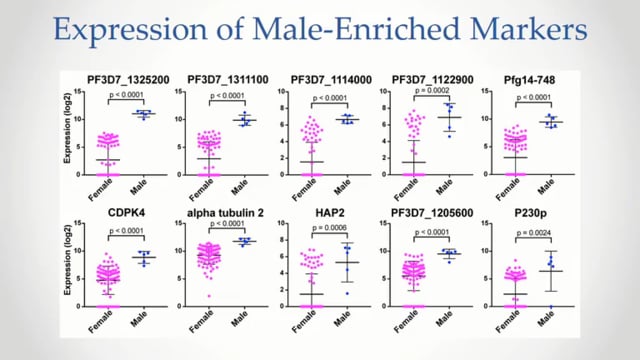ASTMH 2017, Katelyn Walzer: “Using single-cell transcriptomics to elucidate sexual commitment and differentiation in Plasmodium falciparum”
Collaborator(s): Duke University (DU), United States
Published: 08/11/2017
In collaboration with ASTMH, Image Audiovisuals, and session presenters, MESA brings you this webcast from the 66th ASTMH annual meeting in Baltimore, November 2017
Title: “Using single-cell transcriptomics to elucidate sexual commitment and differentiation in Plasmodium falciparum“
Speaker: Katelyn Walzer, Duke University
Session information:
Symposium 0119: “Malaria: Advances in Modeling and Technology for Malaria”
Wednesday, 8 November, 8:00 – 9:45 AM, Convention Center – Ballroom I (Level 400)
Abstract:
Sexual reproduction is an obligate step in the Plasmodium falciparum life cycle, with mature gametocytes being the only form of the parasite capable of human-to-mosquito transmission. During the red blood cell stage of human infection, less than five percent of P. falciparum parasites commit to a sexual fate and become gametocytes. This occurs in a 3:1 ratio of females to males that mature through five distinct gametocyte stages over 10-12 days before being transmitted to the mosquito. Previous studies utilizing Plasmodium berghei indicate that male and female gene expression is highly distinct. But in P. falciparum, although over 300 genes are predicted to be gametocyte-specific, only a few genes have been postulated to be male or female specific. Since these markers are expressed at late stages and their gender-specific expression is debated, separating male and female populations remains technically challenging. Most importantly, there is a large amount of heterogeneity in the parasite population, especially at early gametocyte stages. To overcome these challenges, we have developed an unbiased single-cell approach to determine which transcripts are temporally expressed in males versus females. Using microfluidic technology, we have isolated over 300 single parasites at synchronized asexual and sexual stages to compare the expression of 90 conserved gametocyte-specific genes. These analyses have identified gender-specific gene expression for mid-to-late stage gametocytes, including two male-specific candidate genes. These validated male-specific genes are being knocked out using CRISPR-Cas9 technology and will be tested for their functional roles in male gametocyte development and gamete exflagellation.
THEMES: Basic Science



